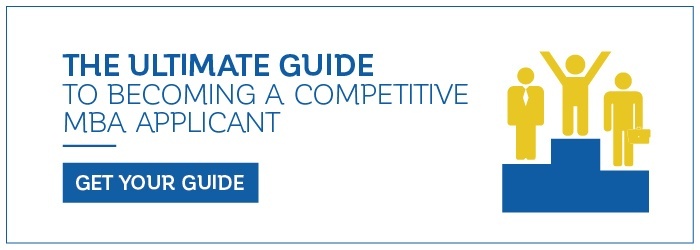

We get a lot of questions about the GMAT and GRE, such as: Is there an advantage to taking one exam over the other? What are the secrets to studying effectively and beating test anxiety? How can I get the best possible score?
Most b-schools now accept the GRE (you can see the full list here), which means you can weigh your options and decide whether the GRE or GMAT will increase your chances of acceptance.
Factors to consider when choosing between the GMAT and GRE
Pro GMAT
You’re an unmistakable candidate for the GMAT if:
- At least one of the b-schools you’re applying to doesn’t accept the GRE.
- You plan on a post-MBA career in investment banking or management consulting. In that case, you should take the GMAT since such recruiters sometimes use GMAT scores as a screening tool.
- The wording on one of your target schools’ websites indicates (if you read between the lines) that the GRE is accepted, but not preferred. (We’re seeing this less frequently.)
- You score higher on GMAT practice tests than on GRE practice tests.
Pro GRE
You should opt to take the GRE instead of the GMAT if:
- You’re fresh out of college and aren’t sure exactly what to do next, but feel prepared to take the GRE. You may as well go ahead and take it – the scores remain usable for up to five years. Maybe you’ll use your scores for a future b-school application, or maybe for some other grad program.
- You want to save money and/or will have trouble getting to a GMAT testing center. If that sounds like you, go ahead and take the GRE (obviously provided that your target schools accept it). The GRE is cheaper, and there are more testing centers throughout the world.
- You score higher on practice GRE tests than on practice GMAT tests AND your target schools accept the GRE.
For most applicants, it’ll come down to where you get higher scores on practice tests. If you repeatedly do better on the GMAT practice tests than on the GRE, then that’s the exam you should take, hands down. Of course, if it’s impossible for you to get to a GMAT testing location, then the decision again becomes quite obvious, and you should opt for the GRE. Weigh your options, see what makes the most sense for you.
How to prepare and take the exam
Some applicants set themselves a specific amount of preparation time to get their best score, then choose target programs based on their qualifications at that point (including the test score). Other applicants select programs first, and determine a target test score based on the program’s average – and then prepare with that target in mind, scheduling the exam when their scores on practice exams are close to that target.
Both of these are reasonable strategies. Do what works for you.
Which test prep option is right for you?
You have a lot of options when it comes to studying for standardized tests – which route is best will depend on how you learn and what areas you need to strengthen. Especially if you know you’re someone who experiences test-taking anxiety (or you’ve struggled with standardized tests in the past), preparation is the key.
Here are a few options:
- One option is self-study, using traditional books and online study aids (such as sample questions and practice exams).
- For a more structured approach, you could use an online course – these usually incorporate videos and instructional guides, along with self-paced study material and exams.
- If you learn best in a classroom environment, then a traditional test prep class might be best for you.
- And if you’re someone who responds best to individual interaction (or if you know you have very specific areas you need to focus on in your preparation), then tutoring, either in person or online, may be the best choice.
Choose the best option for you based on the score improvement you are looking for, your budget, and personal preferences. If you only are looking to improve slightly over your practice exam, self-study may be fine. If you are trying to raise your score significantly, then allow plenty of time and consider a course or tutoring.
Whichever preparation method you choose, study consistently and steadily to achieve your goals!
Our expert MBA admissions consultants can give you personalized advice on which test to take and help you with any other aspect of your business school application. Check out our MBA Admissions Consulting Services to learn how we can help you get ACCEPTED!
 For 25 years, Accepted has helped business school applicants gain acceptance to top programs. Our outstanding team of MBA admissions consultants features former business school admissions directors and professional writers who have guided our clients to admission at top MBA, EMBA, and other graduate business programs worldwide including Harvard, Stanford, Wharton, Booth, INSEAD, London Business School, and many more. Want an MBA admissions expert to help you get Accepted? Click here to get in touch!
For 25 years, Accepted has helped business school applicants gain acceptance to top programs. Our outstanding team of MBA admissions consultants features former business school admissions directors and professional writers who have guided our clients to admission at top MBA, EMBA, and other graduate business programs worldwide including Harvard, Stanford, Wharton, Booth, INSEAD, London Business School, and many more. Want an MBA admissions expert to help you get Accepted? Click here to get in touch!
Related Resources:
• Five Effective Stress-Reducing Solutions for GMAT/GRE Success, a free webinar
• E-GMAT: A New and Better Approach to GMAT Prep, a podcast episode
• Making Friends With the GRE: How To Overcome Test Anxiety and Perform at Your Best
The post Should You Take the GMAT or the GRE? appeared first on Accepted Admissions Blog.


No comments:
Post a Comment